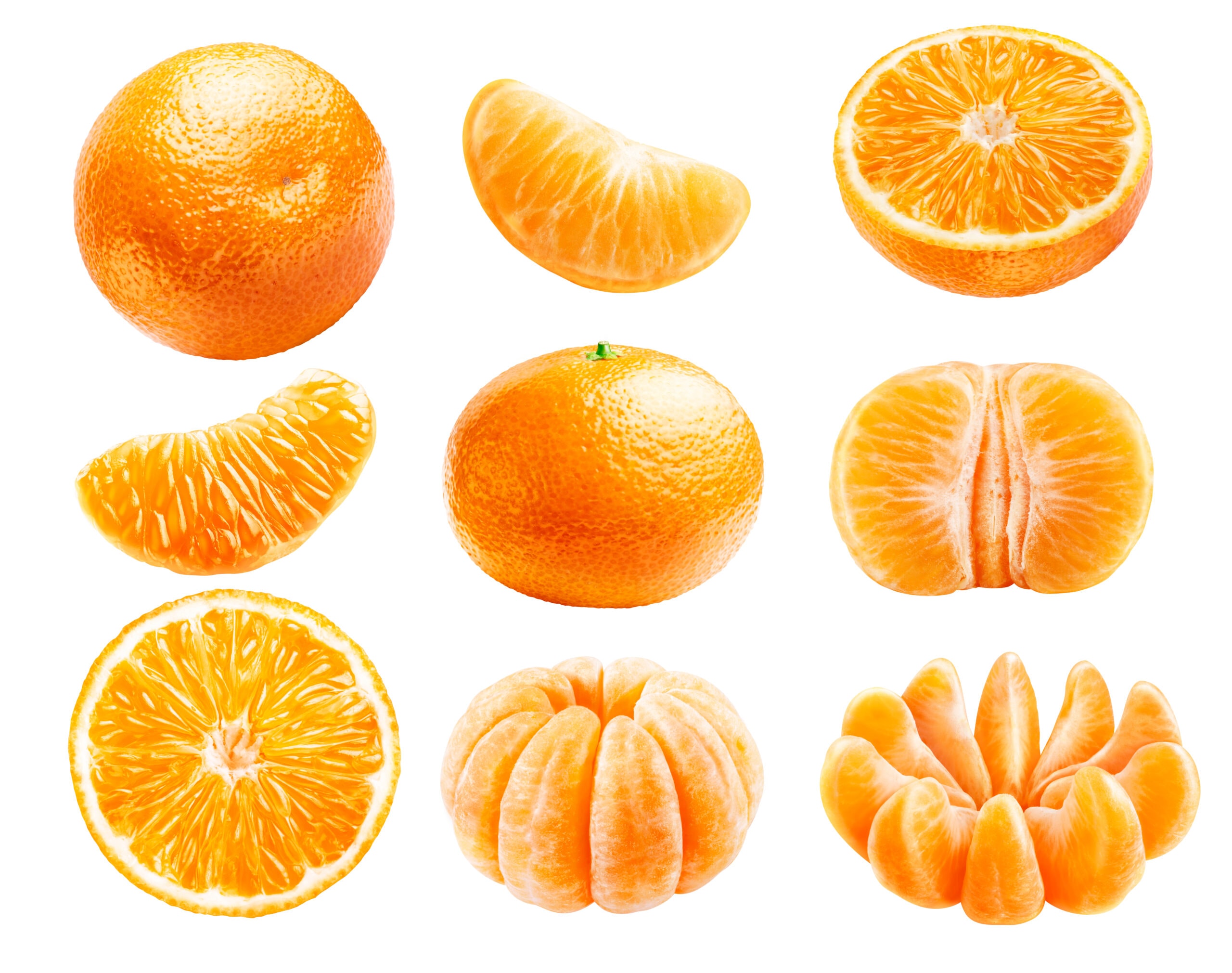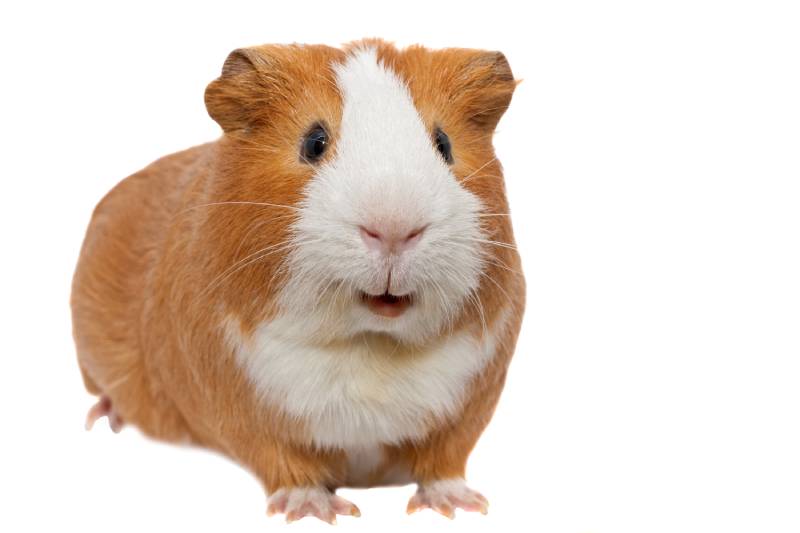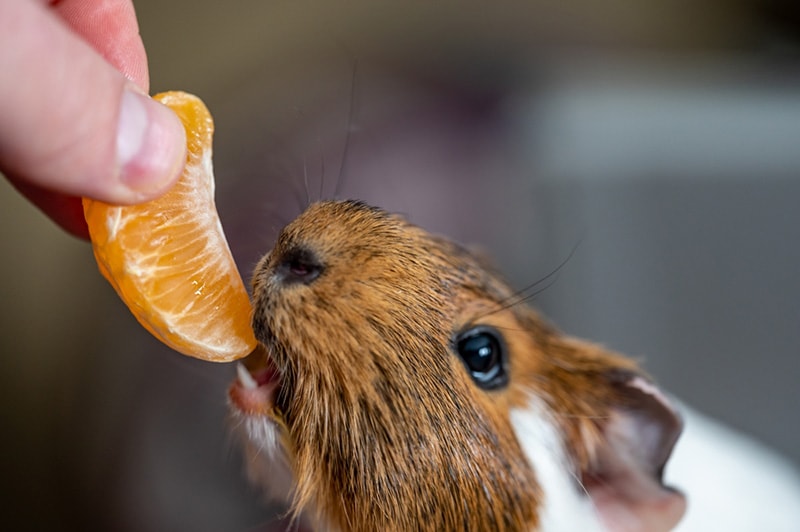
Click to Skip Ahead
When summertime rolls around, it’s common for people to begin buying citrus fruits to enjoy. When having these types of snacks around the house, it’s common to consider offering them to your pets. This is especially true if you have a guinea pig. These animals are known for enjoying fruits and veggies. But what about winter fruits like tangerines? Can guinea pigs eat tangerines? The answer to this question is yes, but only in moderation as tangerines have a bit of sugar in them. Let’s learn more about guinea pigs and tangerines so you can safely offer them and other similar fruits to your pet.
What Are Tangerines?
Tangerines are a tasty citrus fruit that is a bit smaller than an orange. They are considered a winter fruit due to the season for them being November to January. Tangerines were brought to Europe from Morocco in the 1800s. Since that time they have been a popular fruit option. Tangerines are related to mandarins and have rinds that are very easy to remove. This makes them a great snack for anyone, but especially for those that are in a hurry. Many people call them pocket fruits for this reason.
Tangerines have a reddish-orange color and a loose rind. When this rind is removed, you find that fruit can be separated easily, however, they often have lots of seeds hidden inside. The taste of tangerines is mostly considered a bit sour or tart. There have been cultivators creating sweeter versions of tangerines and even a few that are seedless.

Nutritional Information About Tangerines
Tangerines are packed with vitamins, minerals, and other goodies. They also contain sugars which aren’t ideal in high quantities for guinea pigs. Here’s a look at the nutritional facts about 100 grams or 3 ounces of tangerine.
| Calories | 53 |
| Carbohydrates | 13.3 g |
| Proteins | 0.8 g |
| Fiber | 1.8 g |
| Sugar | 10.6 g |
| Vitamin A | 14% |
| Vitamin C | 44% |
| Vitamin E | 1% |
| Thiamin (Vitamin B1) | 4% |
| Riboflavin (Vitamin B2) | 2% |
| Niacin (Vitamin B3) | 2% |
| Vitamin B6 | 4% |
| Calcium | 37 mg |
| Iron | 1% |
| Magnesium | 3% |
| Potassium | 5% |
| Copper | 2% |
| Manganese | 2% |
| Fat | 0.3 g |
The Benefits of Tangerines
With tangerines being a suitable fruit for guinea pigs to enjoy in moderation, we should take a look at a few benefits they provide your pet.
Good for Weight Control
Tangerines are a fruit you can offer to your guinea pig once or twice a week, that won’t cause weight gain. This is due to the low calories found in tangerines. You’ll also find that tangerines are low in carbs and proteins. This also aids in keeping your guinea pig at an ideal weight.

Helps Build Immunity
Tangerines are also a great source of vitamin A and manganese. Why is this beneficial? Both of these are considered strong antioxidants. This means they help build immunity and protect against damage from free radicals and diseases.
Prevents Scurvy
Scurvy is a serious, and often fatal disease that can affect guinea pigs. Scurvy can be prevented by regular amounts of vitamin C in your guinea pig’s diet. Tangerines, like most citrus fruits, are great sources of this vitamin. This is especially helpful since guinea pigs cannot synthesize this vitamin and need it supplemented into their diet.
Tangerine Risks
As we’ve already mentioned, guinea pigs shouldn’t eat tangerines daily. Why is this? Let’s take a look at the risks involved with feeding these yummy fruits to your guinea pig too often so you’ll better understand our stance.
Citric Acid
Tangerines, like all citrus fruits, have a lot of acid in them. The acidity in these fruits can cause sores in your guinea pig’s mouth. It can also upset your pet’s digestion.
Too Much Sugar
Guinea pigs have sensitive stomachs. This is especially true when it comes to sugar. Guinea pigs struggle to digest a lot of sugar too often. When this happens, it can cause your guinea pig to have gas, cramps, an upset stomach, and loose stools. Tangerines are considered high in sugar, which is why your guinea pig should only enjoy these fruits once or twice per week.
Urinary Tract Issues
As you saw above, tangerines have calcium in them. Unfortunately, calcium isn’t great for a guinea pig’s urinary tract. Excess calcium in the urinary tract simply sits there and can be fatal to your pet. It can cause issues like kidney stones, bladder stones, blood in the urine, and painful urination.
How to Feed Tangerines to Your Guinea Pig
Now that you know tangerines are a good, occasional fruit for your guinea pig, it’s important to know how to feed them. First off, fertilizers, pesticides, and other chemicals are dangerous for your pet. If possible, choose organic tangerines and wash them thoroughly before allowing your pet to enjoy them. You’ll also need to peel the tangerine. The peels are safe for your guinea pig to eat, but they must be removed first to reach the seeds inside. Tangerine seeds are considered a choking hazard, so do not allow your pet to eat them. Once those and any pits are gone, you can offer your guinea pig a few pieces. Once your guinea pig is finished eating, remove any leftovers from their enclosure so they don’t go bad.

How Often Can Guinea Pigs Eat Tangerines?
As we’ve mentioned, tangerines are only an occasional snack for guinea pigs. It’s best to only allow them to eat this fruit once, or perhaps twice, a week. They are excellent sources of vitamin C, but you don’t want to overload your pet with the acids inside or the sugar. It’s also best to only provide them with a few pieces. Too much at once can cause an upset stomach and several other issues.
Conclusion
Now that you’ve learned more about the benefits of tangerines for your guinea pig, you can see why they are a good snack for your pet. If you want to allow your guinea pig to enjoy the taste and goodness inside a tangerine, feel free to give them a few bites once or twice a week.
Read Also:
- What Do Guinea Pigs Eat? The Best Foods To Feed Your Guinea!
- Can Guinea Pigs Eat Arugula? What You Need to Know!
Featured Image Credit: JumpStory








